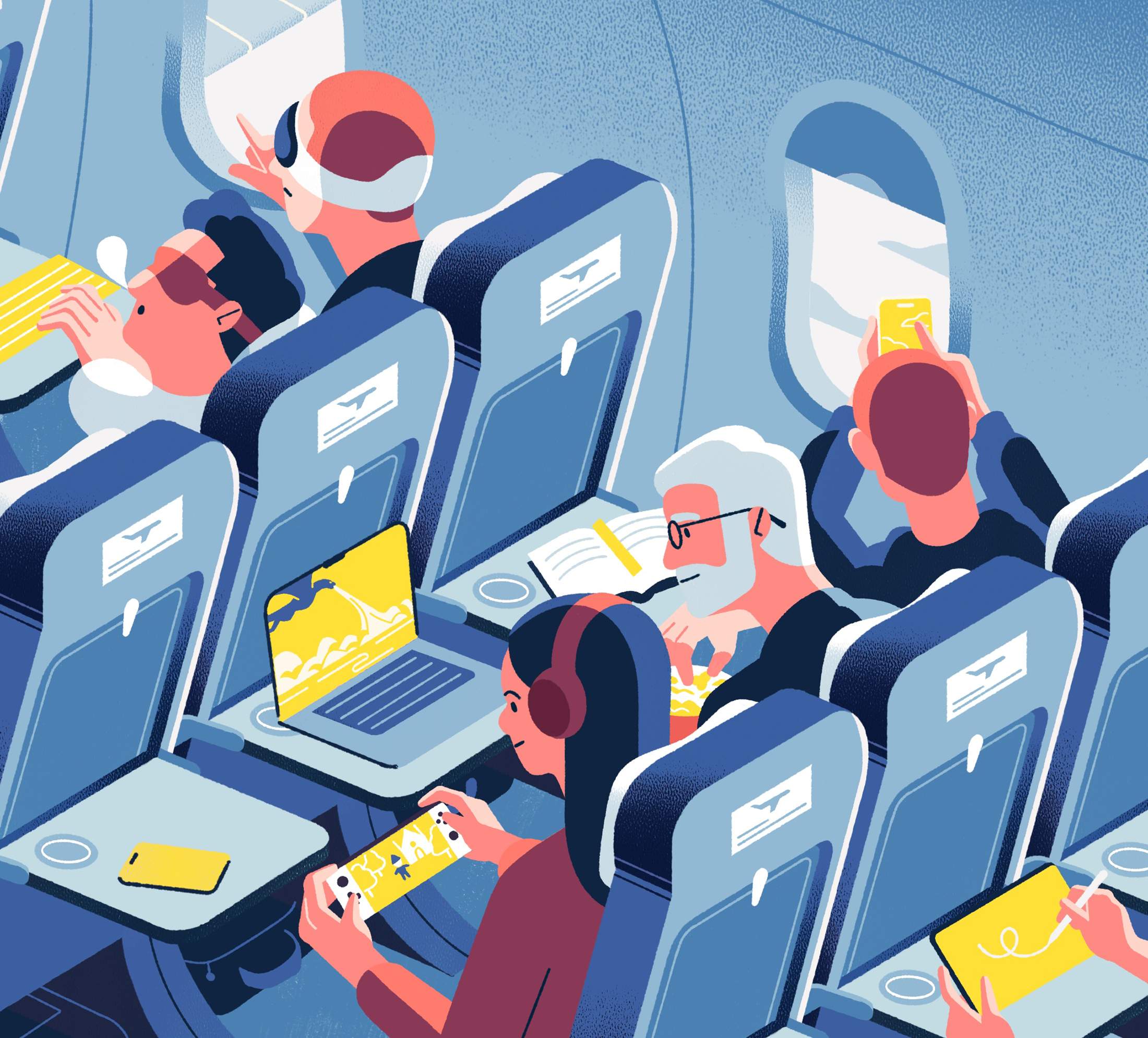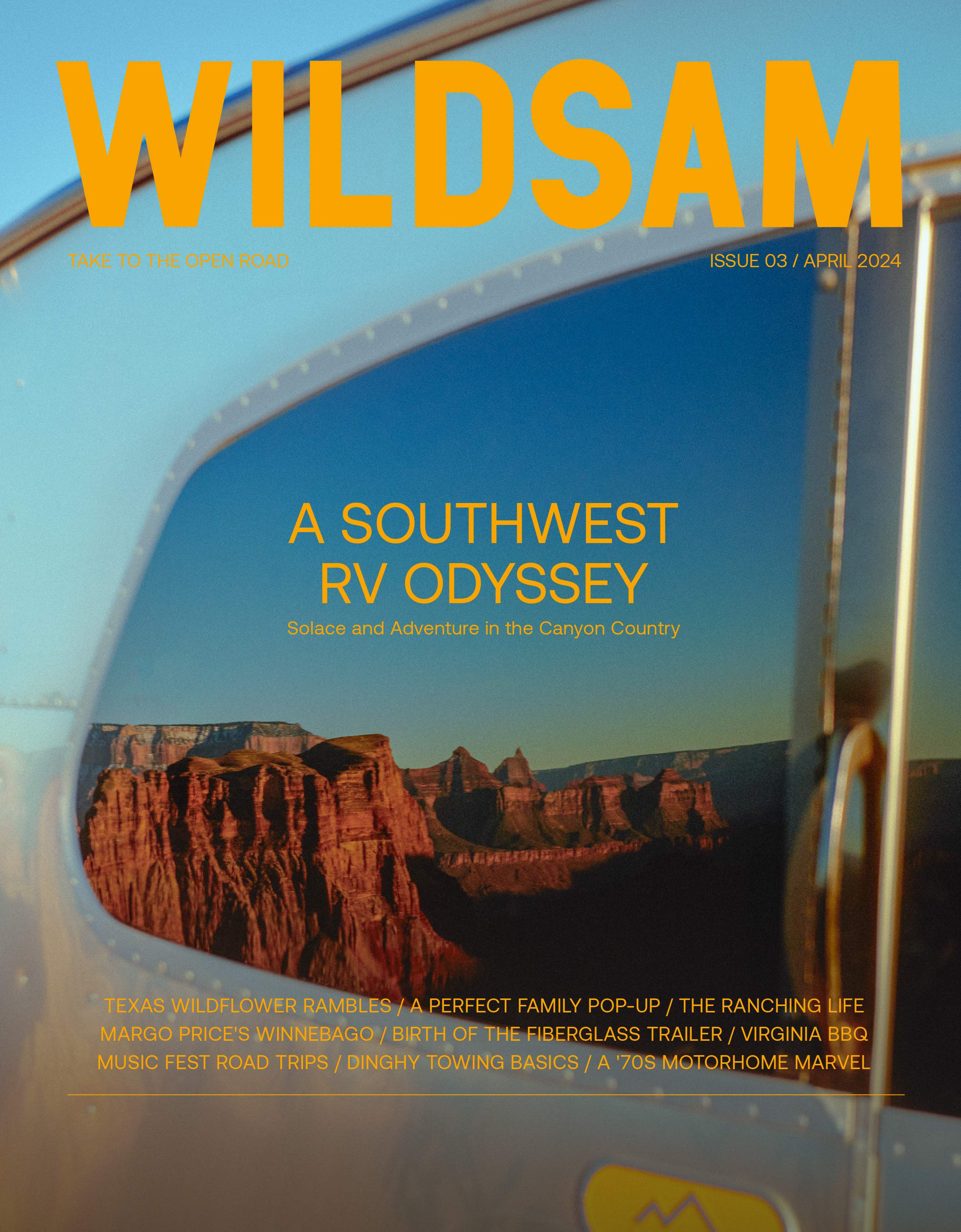September / Global
The Agenda: Culture
The death of in-flight entertainment, roadtrips on paper and the cultural industrial revolution.
aviation –––– global
Bring your own
Smartphones are revolutionising in-flight entertainment. Paul Charles ponders what will come next.
More than 100 years since 11 passengers in an Aeromarine Airways plane excitedly watched the first in-flight movie – a short promotional film called Howdy Chicago – are we witnessing the end of this travel tradition? The introduction of wi-fi on planes has made staying connected easier than ever, albeit with pesky outages, depending on your route (for some reason, the signal always drops over the Bay of Biscay, off the west coast of France). Today most people board clutching their mobile device, onto which they have downloaded their favourite films and TV shows.

There’s a cost factor for airlines to consider. Onboard monitors are expensive to maintain and are often so unreliable that they periodically need to be reset by cabin crew. Turkish Airlines will soon provide free wi-fi to all passengers on every flight. Finnair, British Airways and Singapore Airlines now offer free messaging for travellers if they sign up for their respective loyalty schemes. This encourages those onboard to use their own devices for the duration of the flight, rather than rely on the larger screens installed on the plane.
In the race to be as sustainable as possible, companies are also seeking to reduce aircraft weight. By reducing the size of in-flight monitors or removing them entirely, airlines can ensure that their planes weigh less and don’t need as much fuel. As in years gone by, the aircraft of the future might have tiny monitors overhead, used to display cabin safety messages or maps showing where you are and at what height. In-flight entertainment will be provided by you, the passenger, who will be left to your own devices. —
Paul Charles is the CEO of luxury travel consultancy The PC Agency and a former director of Virgin Atlantic.
media –––– usa
Q&A
Taylor Bruce
Editor in chief, Wildsam
Taylor Bruce is the editor in chief of Wildsam, an Austin-based travel brand known for its Field Guides. Wildsam has now launched a magazine that will publish 12 issues a year. Here, Bruce tells Monocle about his fondest travel memories, his plans for the magazine and where’s next on his bucket list.
Why do you love roadtrips?
Some of my favourite memories are of travelling through national parks or from Austin, Texas, to Colorado and back. It’s a rite of passage: for young adults in the US, driving from coast to coast is one of life’s most exciting experiences. Roadtrips are also an important part of our heritage. Something about the expanse of our landscape captivates the imagination.
What has been the reaction to Wildsam’s move into magazines?
It has been great. There has been an upswell of magazines leaning into specific niches. We’re embracing the unique things that go hand in hand with roadtrips: recreational vehicles, back roads and scenic routes, and visiting small businesses along the way.
Which part of the US are you most excited to explore? We’re focused on the West Coast now, looking at the redwoods in our national and state parks. Also, any region that touches the Great Lakes, such as Minnesota or Wisconsin, which are real hidden gems.

events –––– USA
Setting the stage
London-based events company Broadwick Live is behind some of the UK’s most ambitious cultural spots, including Drumsheds, an enormous venue inside a former Ikea building in the capital’s Upper Lea Valley area. Many of its spaces have an industrial past and its latest location is no exception: New York’s Brooklyn Storehouse is a shipbuilding site on the Navy Yard industrial complex.

Once a military dockyard, the building has been used for civil shipping and boat repairs for the past 50 years. “It belongs to New York’s Economic Development Corporation, which has a clear mandate to stimulate industrial jobs,” says Simeon Aldred, Broadwick Live’s director of strategy. “We believe that we can create a new cultural industrial revolution, generating employment and socioeconomic change. Shipyards, power stations, warehouses – these buildings are often loved by the community, so developers are no longer commissioned to knock things down.”
For Broadwick Live, which runs 23 venues in the UK, expansion into the US felt like a natural next step. The availability of characterful (and gigantic) properties was another factor. “New York still has swaths of amazing industrial spaces that can be reused,” says Aldred. Brooklyn Storehouse will have a mixed schedule that spans electronic gigs, fashion shows and theatre performances. “We have to make bold strides. Culture is being squeezed out of cities in the rush to build cheap housing. We want to do something to redress that.”
brooklynstorehouse.com


